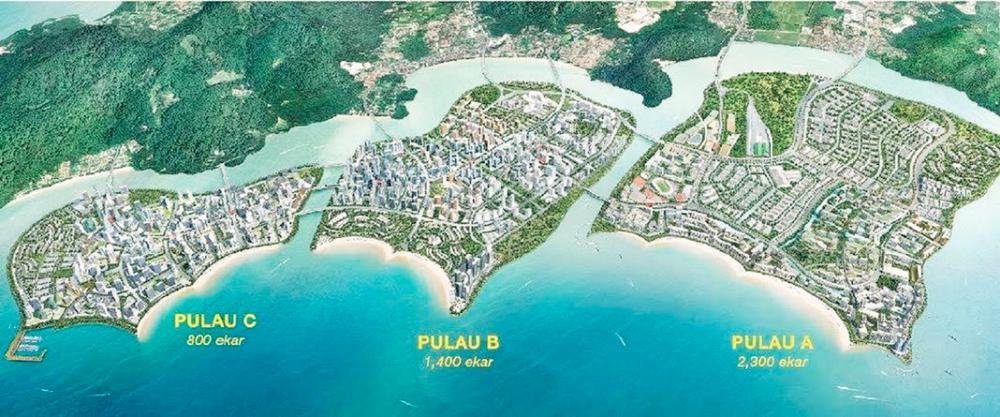GEORGE TOWN: There is a high risk that the parcels of land that will be reclaimed and the islands that will be built under the Penang South Reclamation (PSR) project will be destroyed four decades after they are completed.
A town planning specialist said these areas would be inundated by flash floods caused by climate change and high-rises would collapse due to ground instability on the islands.
“It is a disaster in the making,“ said Prof Emeritus Dr Hans-Dieter Evers of the Institution of Malaysian and International Studies at Universiti Kebangsaan Malaysia.
In his talk on climate change at the Penang Heritage Trust on Saturday, Evers said climate change triggered by global warming would raise sea levels. However, most reclaimed sites in Penang and even Singapore were only a few metres above sea level and were therefore vulnerable to rising water levels especially during nasty weather.
Earlier this month, Penang received federal approval for its plan to construct three artificial islands with a total land area of 1,821ha.
The islands will then be sold and the proceeds used to underwrite the cost of the RM46 billion Penang Transport Master Plan.
The plan includes a light rail transit system, a highway that will span the three islands and two Pan-Island Link roads.
Evers reminded the audience that over the past 10 years, estimates on the rise of the sea level had constantly been revised upwards, as it had for global temperatures.
In its latest report, the United Nations Intergovernmental Panel on Climate Change estimates that by 2099, the sea level will be 56cm to 200cm higher than it is now, up from its earlier prediction of 18cm to 59cm for the same period.
Worse than that, some research institutes have pegged the figure at 4m to 6m by the end of this millennium. That would render many parts of George Town and Balik Pulau, as well as parts of the mainland and all the reclaimed sites under water.
Evers said that instead of reclaiming land, the authorities should focus on taking long-term measures to protect the land from rising sea levels. He said these efforts could include building dykes, dams and canals to mitigate the rise in sea level.
He urged those responsible to emulate the Dutch who have made the Netherlands an example to how the world could address the issue of rising water levels.
Since 1988, a total of 31 reclamation projects have been approved nationwide, including the construction of 18 artificial islands.
Penang Fishermen Association president, Nazri Ahmad, said 30% of fishermen usually returned empty handed after a full day at sea, and he blamed it on climate change.
He feared that the situation would worsen if the PSR)project was allowed to proceed.
“This is one of the reasons why fishermen are opposed to the project,“ he said.
Nazri said over-fishing had also caused the marine life to deplete extensively. As a result, he said, fishermen had to travel further out to sea, putting their lives at greater risk.
He said the authorities, through the Department of Environment, should have sought feedback from the fishermen when conducting the environmental impact assessment for the PSR project.










